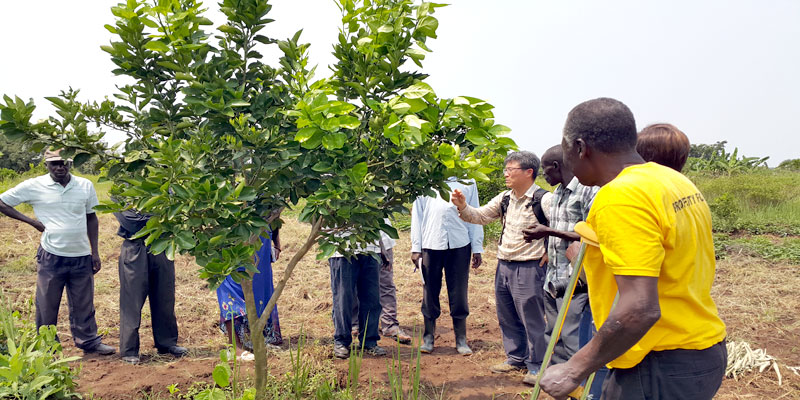Business
Citrus farmers get a double boost
Over a decade ago, the Government launched an orange-growing project in the Teso Sub-region with the intention of increasing household incomes. The peasant farmers were encouraged to grow large acres of orange tree orchards with a view to setting up a fruit processing factory which was expected to happen in five years time to process fruit juice. Many peasants in the region embraced the idea and put it into practice.
Ten years later, that factory is now nearing completion and is expected to be operational early next year thanks to the Korean Programme on International Agriculture (KOPIA).
The factory was not ready by the time the orange orchards had blossomed to produce fruit juice. It caused a glut in the orange fruit output to the extent that the peasant farmers had no ready market for their crop. When they failed to sell it, they let the gardens fall into bush. In the process, the citrus trees developed diseases that affected the fruit, thus further diminishing the value of the crop. The peasant farmers even resorted to chopping down the trees for firewood.
Now, KOPIA is coming to the rescue of these farmers on two fronts. Firstly, KOPIA, by sponsoring Kawanda’s National Agricultural Research Laboratories, to advise farmers on disease management, especially of the Black Leaf Spot disease, that is affecting their crop. This has spawned the setting up of a useful Teso Tropical Fruit Co-operative Union (TEFCU), at the forefront of propagating and marketing the fruit.
Secondly, and perhaps more crucially, is the inculcation of a mindset among these peasant farmers that they should see this as a community venture in which their livelihood is intricately bound.
With this attitude in place, it will give rise to the management of other attendant problems, like the case of irrigating their crops during the drought periods. Of late, this point has been mooted, without it having a sound basis, like what KOPIA is providing for the fruit orchards. Undoubtedly, this will provide a great impetus to the whole agriculture sector.
In fact, the previous lack of this is currently affecting the sub-region to the extent that there is a looming famine because of the prolonged drought. Had the peasant farmers developed this mindset earlier, they would now be having the experience of, not merely managing the citrus orchards, but also other crops which would have provided them with the knowledge necessary to provide adequate food crops to offset any looming threat of famine.
It is important that the communities now, through TEFCU, and the encouragement of KOPIA, should get involved in the recruitment of voluntary community mobilizers, set at all the villages in the sub-region to go round inculcating this spirit among the peasant farmers for their own livelihood and sustenance. An off-shoot of this community development spirit should be practiced this X-mas festive season where parents should take responsibility for their children and not send them away to relatives, instead they themselves taking familial responsibility.
This is not a far-fetched notion. The Ministry of Gender, Labour and Social Development, already has this programme within its Community Development department. All that is needed is for a collective Government effort to see this into fruition.
Comments



















